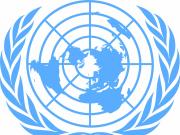The coronavirus or COVID-19 pandemic is expected to sharply affect the growth of the developing econmies in East Asia, Pacific and as well as China, the World Bank stated in an economic update on Monday.
The bank mentioned that the precise growth forecasts were tough, due to the rapidly changing situation but the baseline called that the growth in developing countries is going to slowdown to 2.1 percent in 2020, and also to -0.5 percent in a lower-case scenario, when compared to the estimated growth of 5.8 percent in 2019.
Aisan economies to get affected by pandemic: World Bank

In China, where the coronavirus outbreak originated in late December, growth was projected to slow to 2.3 percent in the baseline scenario, or as low as 0.1% in the lower-case scenario, compared to growth of 6.1 percent in 2019.
The region faced an unusual combination of "disruptive and mutually reinforcing events," the report said. "Significant economic pain seems unavoidable in all countries." Countries in the region should invest in healthcare capacity and take targeted fiscal measures, such as providing subsidies for sick pay and healthcare, to mitigate some of the immediate impacts of the pandemic, the World Bank said.
"Containment of the pandemic would allow for a sustained recovery in the region, although risks to the outlook from financial market stress would remain high," it said. The financial shock of the pandemic was also expected to have a serious impact on poverty, defined as income of $5.50 a day, the bank said. The baseline scenario called for nearly 24 million fewer people to escape poverty across the region in 2020 due to the pandemic. If the economic situation deteriorated even further, poverty could increase by about 11 million people.
Countries should ease credit
Prior projections estimated that nearly 35 million people would escape poverty in the region in 2020, including over 25 million in China alone, the bank said. In addition to targeted fiscal measures, countries should look to deeper international cooperation and new cross-border public-private partnerships to ramp up the production and supply of key medical supplies and services, and ensure financial stability in the aftermath of the crisis, it said.
Countries should also ease credit to help households smooth their consumption and help firms survive the immediate shock of the outbreak. "The good news is that the region has strengths it can tap, but countries will have to act fast and at a scale not previously imagined," said Victoria Kwakwa, vice president for East Asia and the Pacific at the World Bank.
(With agency inputs)








